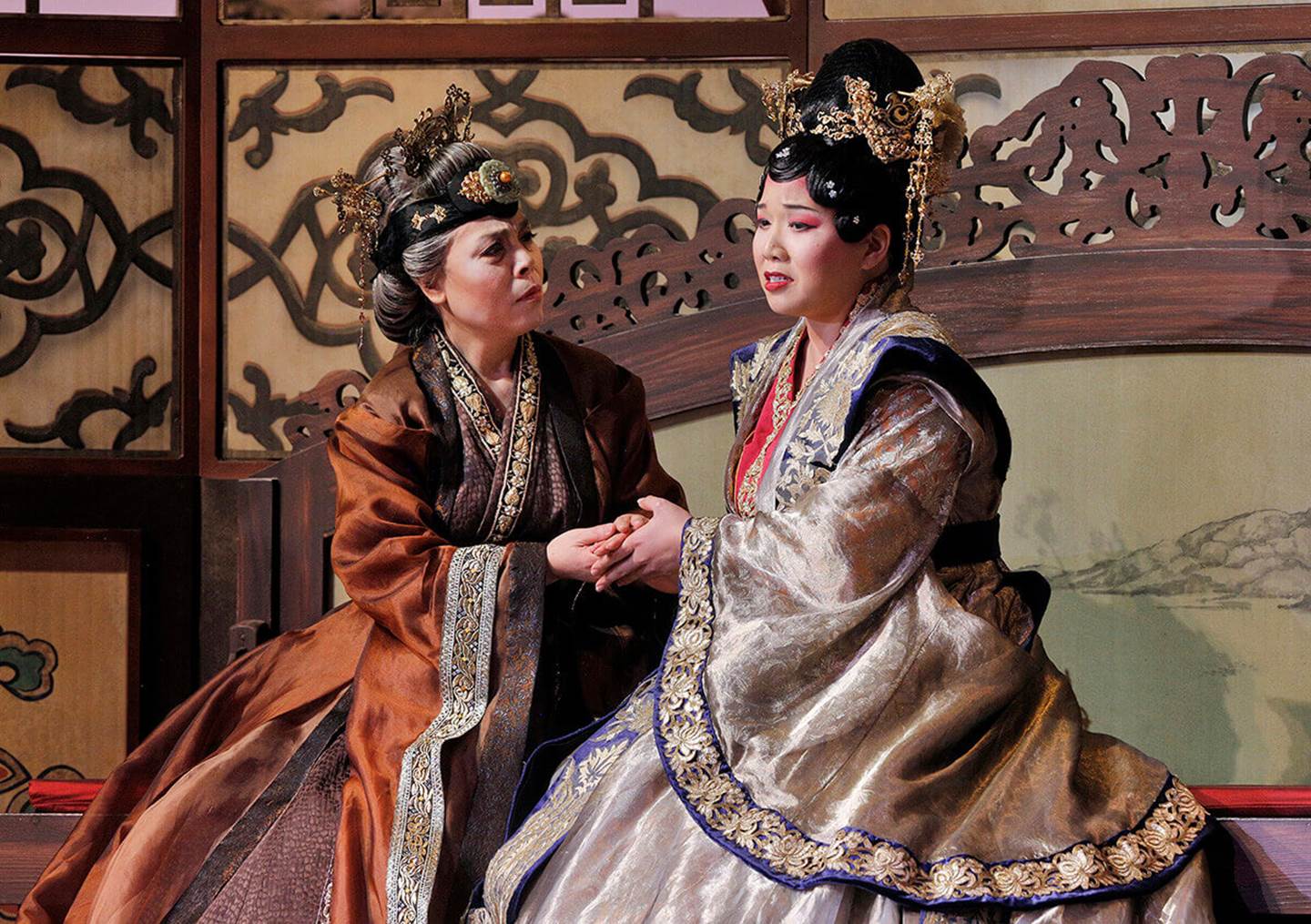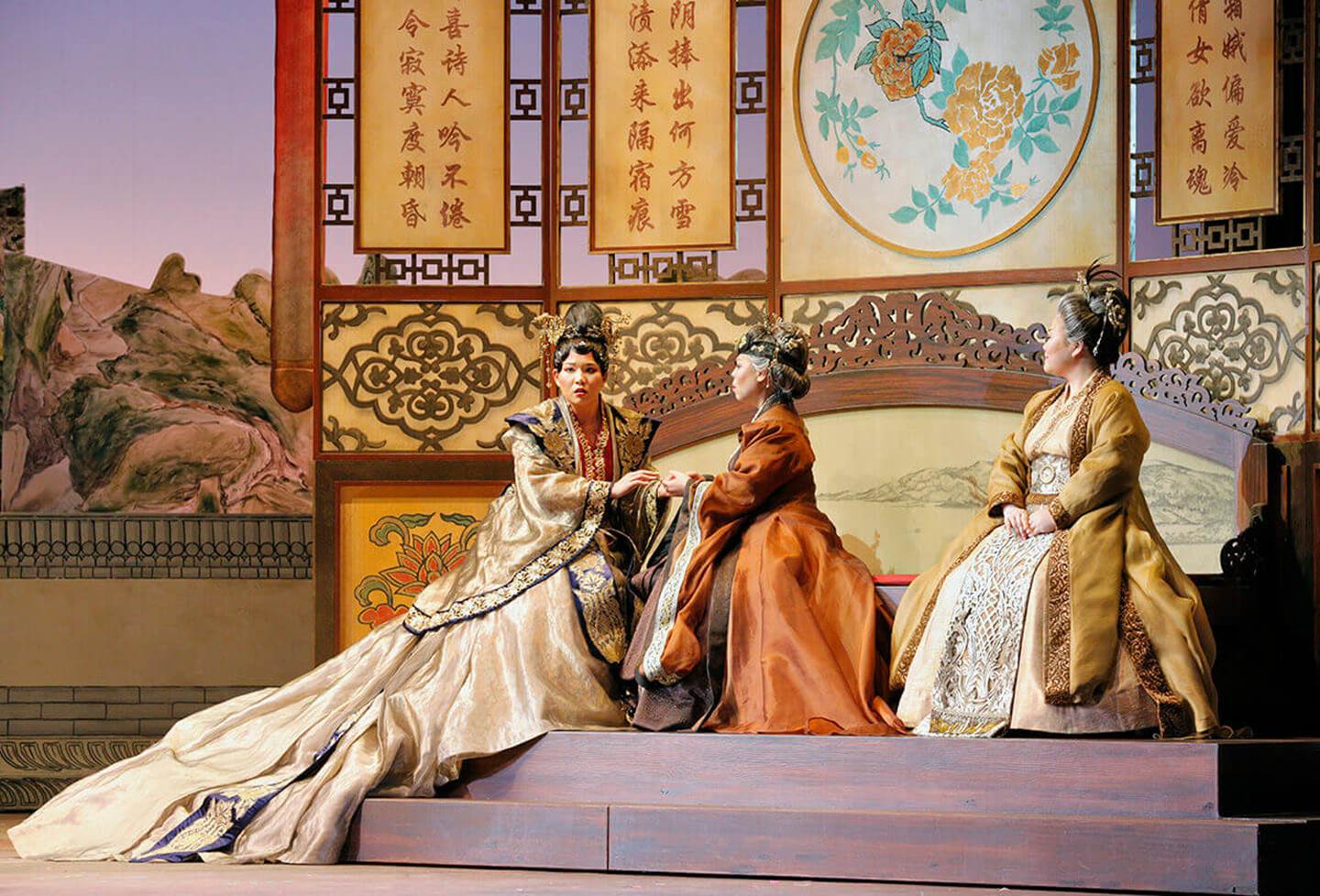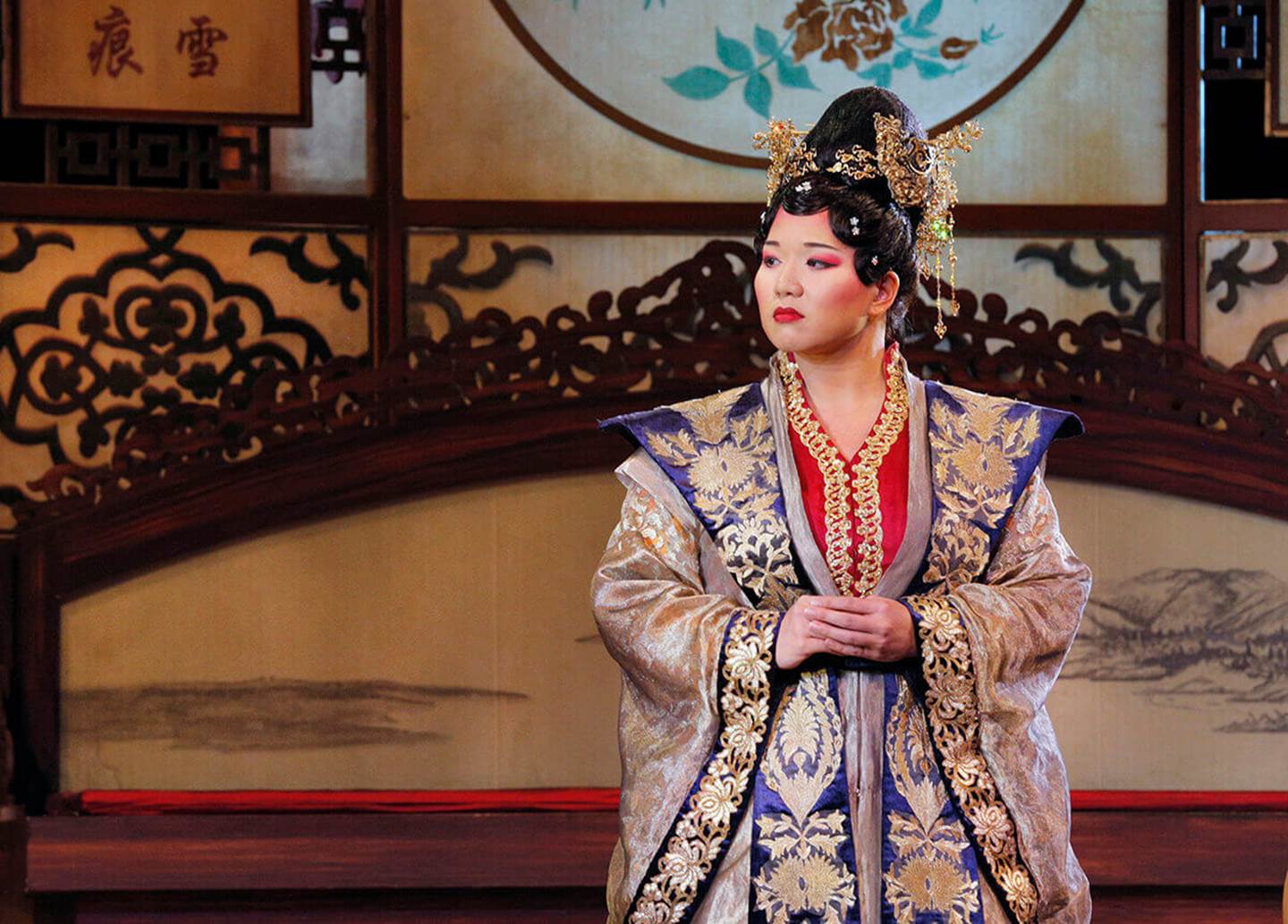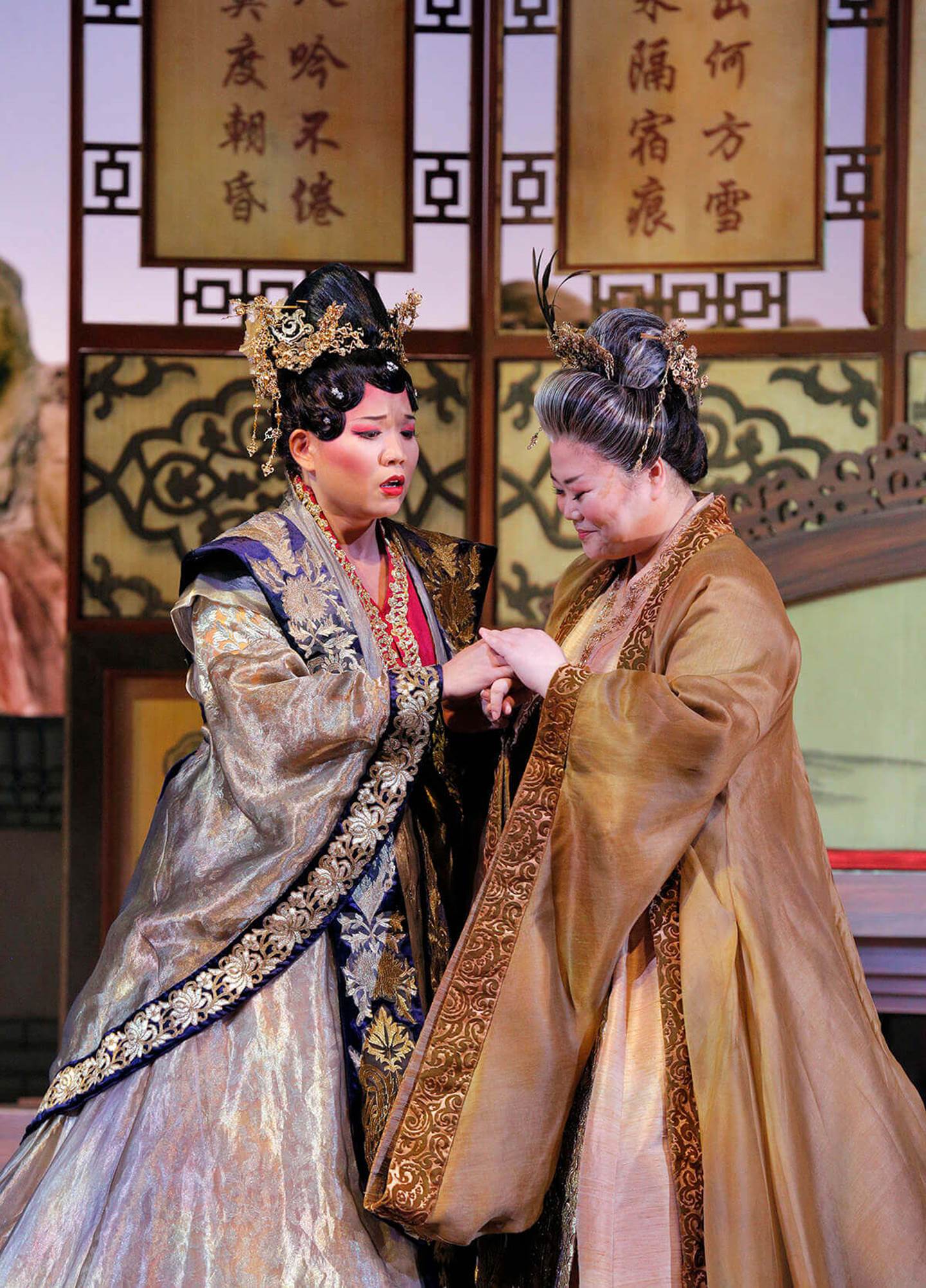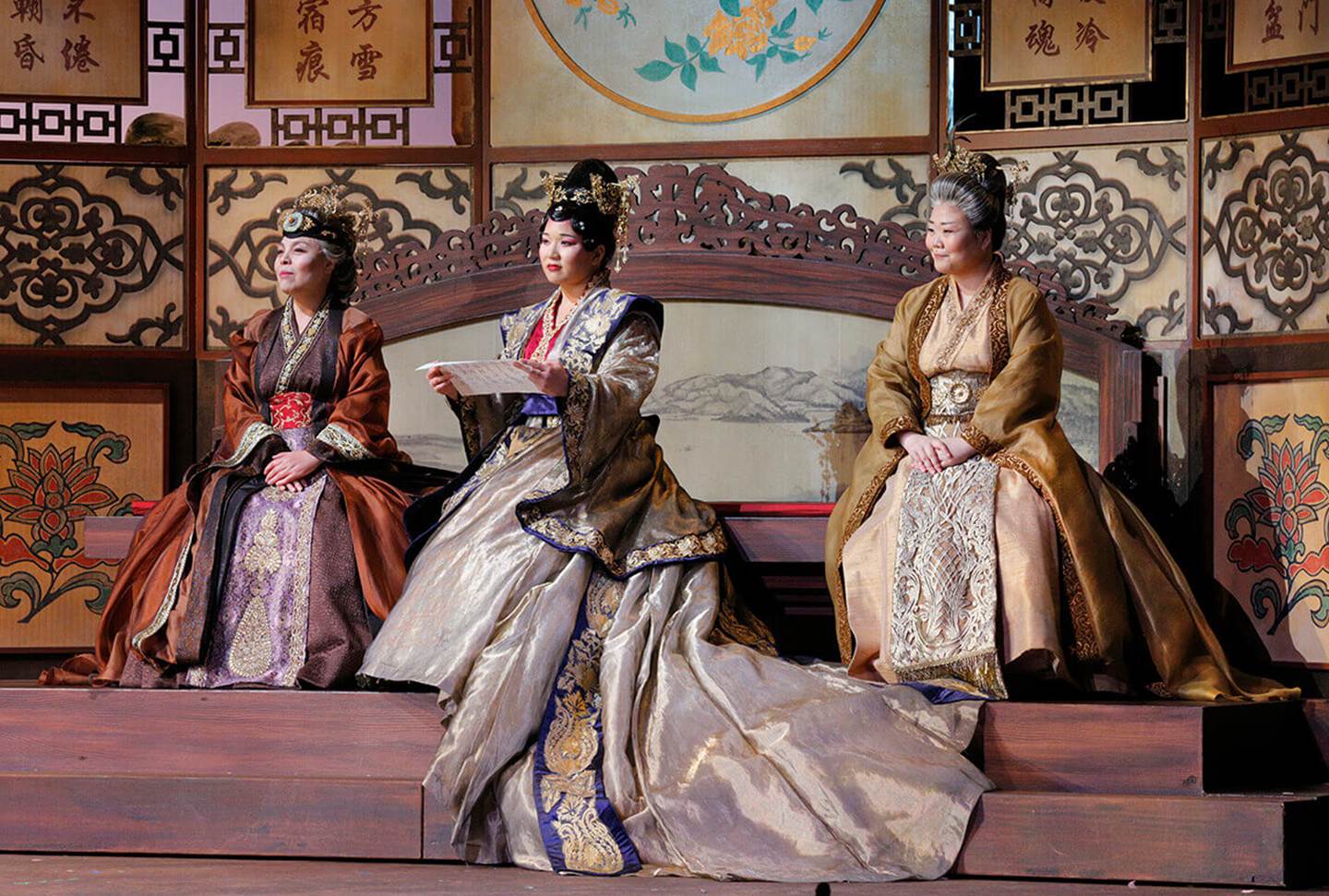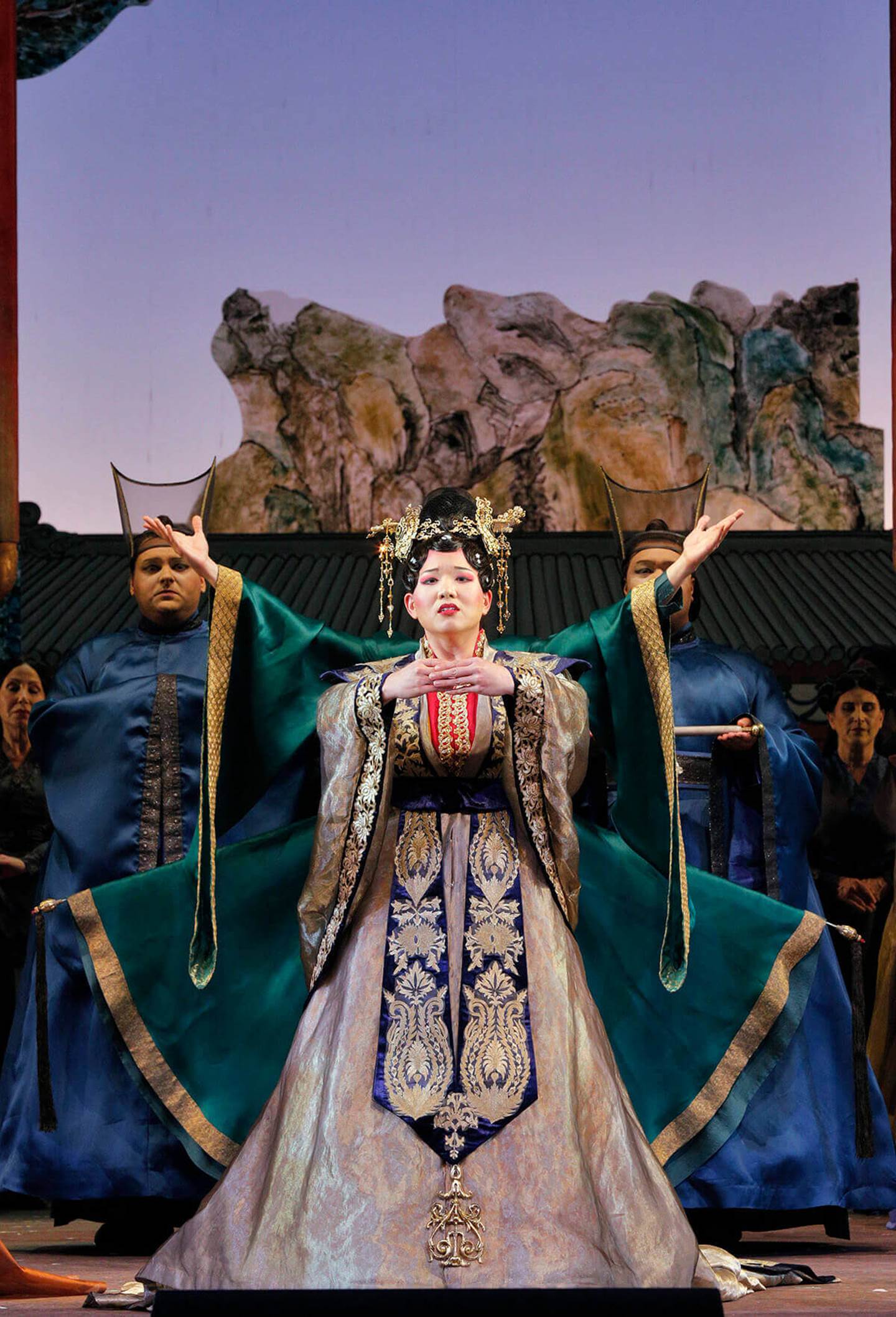A Princess Returns: Soprano Karen Chia-Ling Ho on ‘Dream of the Red Chamber’
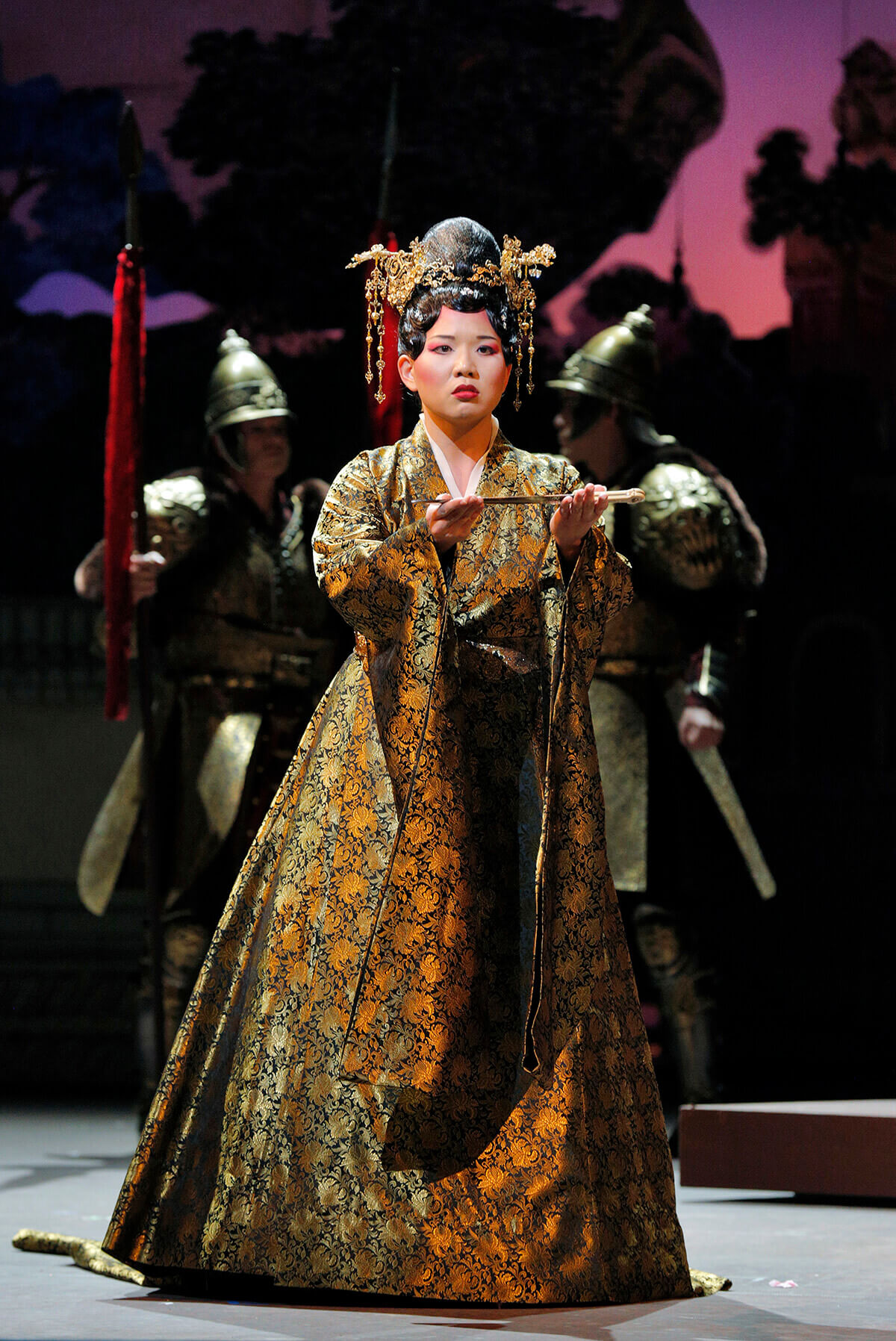
But with the pressure of performance put on pause—and the rents in New York City as high as ever—Ho’s fiancé proposed a change: Why wait to get married?
That’s how, two years ago, Ho ended up moving to Chicago and marrying her now-husband, in a small wedding broadcast over Zoom. They held it outside, in the backyard of her brother-in-law’s house next to a golf course, and they invited family and friends to tune in.
Ho’s parents were watching from Taiwan, where Ho herself grew up—and discovered the talent that would define her career.
Ho is currently the star of San Francisco Opera’s upcoming revival of Dream of the Red Chamber, a new opera from composer Bright Sheng and playwright David Henry Hwang that premiered with the Company in 2016. She originated the role of Princess Jia, a consort in the court of China’s emperor, whose whims determine her family’s fate.
But before she was starring on some of America’s great stages—from Carnegie Hall to the Metropolitan Opera—Ho got her start in Taipei, the capital of Taiwan.
It was there that her mother, an employee at a local bank, noticed a five-year-old Ho singing along to television ads. Whenever her favorite commercial for soy milk came on, Ho couldn’t help but sing and dance to it. To this day, Ho still remembers the melody.
Ho describes her mother and father, a worker for China Airlines, as “very open-minded.” But music wasn’t a career they’d initially considered for their children. Though Ho and her sister were introduced to the piano at a young age, they were never pushed too hard to learn.
“She didn’t want us to be musicians,” Ho says of her mother. “She heard that if kids can play piano well, that will help the development of their brain and their coordination with body and mind. So that was her original goal for us: to learn a little bit of music and learn how to enjoy music.”
But with Ho’s budding vocal abilities, her mother decided to audition her for Taipei Hua-Hsin Children's Choir (台北華新兒童合唱團), a chorus that has traveled around the world, visiting more than 20 countries. At age six, she got in.
From then on, music was Ho’s life. She continued with the chorus through junior high, and in high school, she started training as a voice student.
Transitioning from the chorus to solo work proved to be a challenge, though. “When I was in children's choir, I was singing with other people. It was really comfortable. I felt safe because you have partners always beside you,” she explains.
But as she started to take the spotlight—alone—she found herself confronted with nerves.
“I remember, in the first year of undergrad, we always had exams at the end of the semester. I was so nervous, and I couldn't breathe. So when I was singing, when I opened my mouth, I suddenly felt like: ‘My mouth is all dry and I have no saliva. I cannot sing well.’ I almost choked myself on the stage. That was my first really bad experience of stage fright.”
But with the help of her teachers, Ho learned to master her nerves: Every week, she and her classmates each had to perform two or three arias on stage in front of the group. She studied in Taipei and Taichung, with hopes of going abroad to continue her schooling, once her sister returned from Vancouver: “My family could not afford two people at the same time studying abroad.”
Training to be an opera star wasn’t Ho’s aim at the time. She found herself drawn more to art song, particularly German lieder. But while in Taipei, as an undergraduate, she saw her first live opera: Mozart’s comedy Così fan tutte.
“That was so fantastic because I didn’t have any expectation of the opera,” she says. “The story content was really funny. I didn’t expect it. In my mind, I usually thought, ‘Oh, opera is about love stories and people dying on stage.’”
It was only when she arrived at New York’s Eastman School of Music that she herself started to pursue opera as a career. “To be honest, I didn’t like opera before I came to the States,” she says. “I rarely had opera performance opportunities when I was back in Taiwan.”
She credits her professor, Kathryn Cowdrick, with teaching her how to move on stage while singing. Ho would win the Eastman School’s prestigious Renée Fleming Award, named for one of the most popular opera singers of all time—and a fellow Eastman alumna.
Ho was in New York when she received a phone call from her manager, telling her she had been cast in the 2016 world premiere of Dream of the Red Chamber, the newest work from MacArthur “genius” Bright Sheng and Tony winner David Henry Hwang.
“I was screaming on the inside,” Ho recalls. Even her mother cried when she learned the news. The life of an opera singer is unstable, and her mother had been worried.
“You have to wait. You have to take auditions. And then, after the audition season, you have no idea if you are going to get gigs for the next year or not,” Ho explains.
Dream of the Red Chamber was a hotly anticipated opera, based on a classic of Chinese literature. Ho had first encountered the novel in junior high, when she was assigned a chapter to read. The complete work runs upwards of 2,000 pages, with 30 main characters and 400 supporting ones.
“I have to be honest: I never read through everything. It’s thicker than Harry Potter,” Ho exclaims with a laugh. When she heard she would be playing Princess Jia, she started to read the novel again, borrowing a copy from her cousin—but even then, she gave up after a week.
Written in delicate prose, Dream of the Red Chamber tells the sprawling story of the Jia family, as its fortunes rise—and fall—in 18th-century China. As the Jia family’s envoy to the emperor, Ho’s character, Princess Jia, had to be swathed in finery, representing the opulence—and the pressure—of her role.
Seventy-five yards of golden fabric went into her costume, crafted by Oscar- and BAFTA-winning designer Tim Yip. It was the most fabric of any costume created for the opera.
“I did a little bit of weight-training before I went to San Francisco Opera, because I was a little afraid of the heavy costume,” Ho says with a chuckle. She had to practice kicking the long train that accompanied the dress, so it remained flat and didn’t crease, even as she navigated the stage.
The hardest part of the costume turned out to be the wig, Ho says. It too was heavy, adorned with golden ornaments.
Though Ho describes herself as timid, she worked with a dance coach to better embody the princess: She had to seem tall but grounded, aloof but caring.
It was an unusual experience for Ho, not least because the cast started to feel like family to her.
“It was a really special experience to work with these people,” she explains. “They’re very open-minded, and they’re very supportive. I felt like we were making history.”
The debut run of Dream of the Red Chamber sold out at San Francisco Opera, and soon, Ho was flying across the world to reprise her role at the 2017 Hong Kong Arts Festival. From there, she accompanied the opera on tour through mainland China, stopping in Beijing, Wuhan, and Changsha. It was Ho’s first time going on tour with an opera.
She was able to squeeze in a visit to Wuhan’s famed Yellow Crane Tower, one of China’s Four Great Towers and a structure that has existed, in one form or another, for well over a millennium.
Ho had learned about the tower through the poetry she read when she was younger. But she could scarcely believe it was still standing there, right before her very eyes.
Looking up at the tower, with its five floors and gently curved tile roofs, Ho found herself transported to the past, to a history that was centuries old. That, she says, is also the appeal of Dream of the Red Chamber. It is a window into Chinese culture, a chance to explore China through literature and song. And she returns to it again this summer.
Catch up with soprano Karen Chia-Ling Ho on her website or on social media. Dream of the Red Chamber returns to San Francisco Opera this June and July, 2022.


